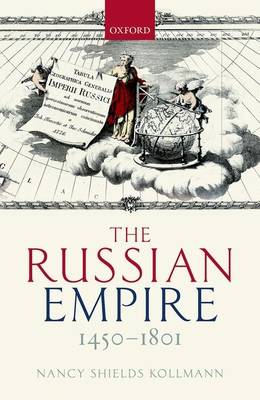
- Afhalen na 1 uur in een winkel met voorraad
- Gratis thuislevering in België vanaf € 30
- Ruim aanbod met 7 miljoen producten
- Afhalen na 1 uur in een winkel met voorraad
- Gratis thuislevering in België vanaf € 30
- Ruim aanbod met 7 miljoen producten
Zoeken
The Russian Empire 1450-1801
Nancy Shields (William H. Bonsall Professor in History, William
€ 160,45
Omschrijving
Russia's imperial past has shaped modern Russian identity and historical experience. The Russian Empire 1450-1801 surveys the empire's emergence and governance, exploring how the state maintained control of defense, criminal law, taxation, and mobilization of resources, while tolerating local religions, languages, cultures, and institutions.
Specificaties
Betrokkenen
- Auteur(s):
- Uitgeverij:
Inhoud
- Aantal bladzijden:
- 512
- Reeks:
Eigenschappen
- Productcode (EAN):
- 9780199280513
- Verschijningsdatum:
- 19/01/2017
- Uitvoering:
- Hardcover
- Afmetingen:
- 195 mm x 242 mm
- Gewicht:
- 886 g

Alleen bij Standaard Boekhandel
Beoordelingen
We publiceren alleen reviews die voldoen aan de voorwaarden voor reviews. Bekijk onze voorwaarden voor reviews.











